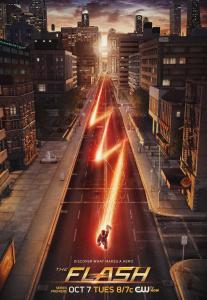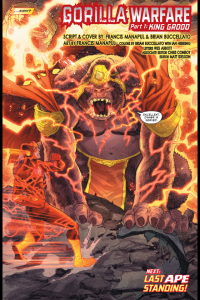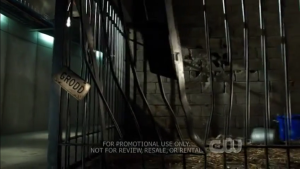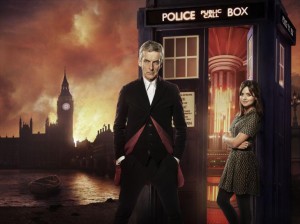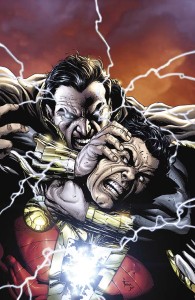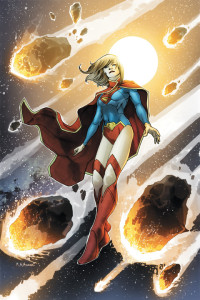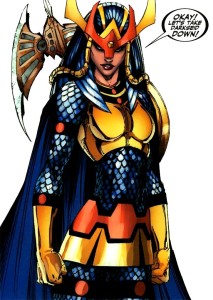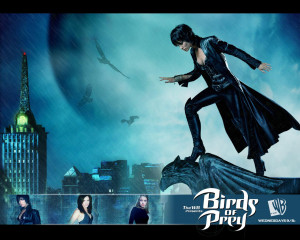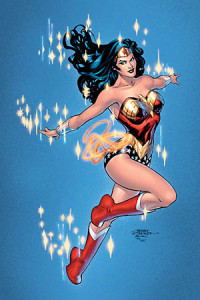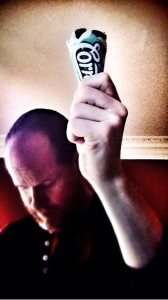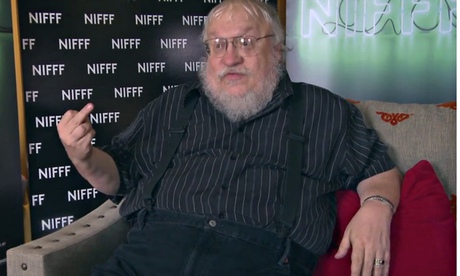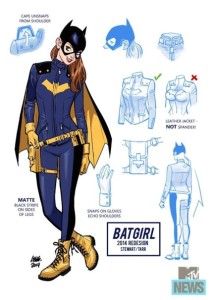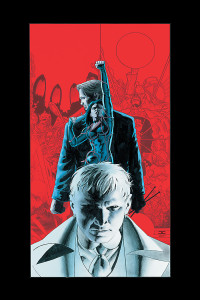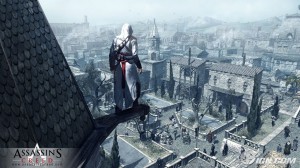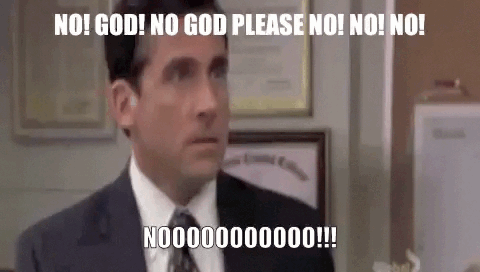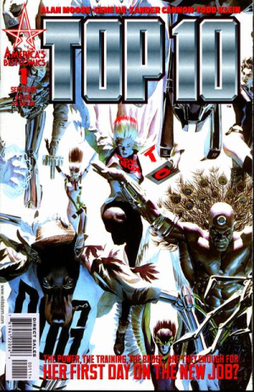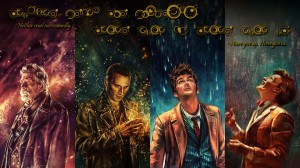An extremely hectic weekend means this is coming a couple of days late, but here we go.
And so we come to the end of my look at upcoming comic book TV shows, what they should avoid, and how they can set themselves apart. My only regret? I seem to have done them in no particular order. Not even broadcast order, since Gotham’s pilot comes the day before Agents of SHIELD’s premiere.
But that’s neither here nor there. Ladies and gentlemen, readers of all ages… Mr. John Constantine.
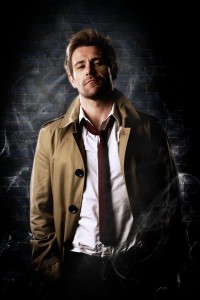
Coming in late October (sensibly close to Halloween), Constantine is based on the DC/Vertigo (DC’s mature readers line) comic Hellblazer, and oddly not on the current DC comic Constantine. Well, they both star the same guy, but since the TV show isn’t about to cross over with the Justice League anytime soon, it’s clearly more based on Hellblazer.
John Constantine is a surly, somewhat amoral magician and conman who, to his frequent annoyance, is one of the few people capable of keeping demons and/or monsters at bay and defending the Earth. He’s been lurking around the comics for three decades, first as a supporting character to Swamp Thing, then as the star of his own comic (the longest running in Vertigo history), and currently as a rogue mystic in the main DC continuity, star of his own book and one of the few consistent faces in the occult super team Justice League Dark.
There was also a movie starring Keanu Reeves but we needn’t discuss that.
And now he’s coming to television. And I’d like him to stay there for a while, so here’s what I see as ways for him to do that.
Challenge: Don’t just be a crime procedural with demons
I get it, Constantine. Procedurals are popular. From the CSIs to the NCIS’s to Castle and Bones and the Hawaii Five-0 team. They’re comfortable and don’t challenge the viewer. But trying to mimic them is where everything started to go wrong for Agents of SHIELD. They sold themselves as Marvel movies come to television, and then delivered NCIS: Fringe Division. Only less cool than the tie-in the Fringe implies.
Not that the procedural format is easy to avoid. Many, many shows I like still require a certain amount of “case of the week.” Most of them US basic cable dramadies: Burn Notice, White Collar, Leverage, mismatched pairs/teams solving problems while, and this is the important part, dealing with some larger plot in bits and pieces.
Now from the trailer, it looks like this is happening. Something sinister is hinted to be on the horizon, and Constantine is right at the center of it. That’s good. That’s a good start. But what’s going to separate you from the bland procedurals is what you do with this. The Mentalist and early Agents of SHIELD had larger plots as well: the Mentalist was hunting Red John, the serial killer who murdered his family, and Agents of SHIELD had its weekly hints about Coulson.
But they didn’t go anywhere.
I gave up on the Mentalist when it was clear that they would never truly make any progress in catching Red John until the show was over, and that stretching this plot out was practically giving Red John magic powers. Seriously, he kidnapped a medium that the Mentalist (no, I cannot be bothered to look up his name right now) liked, then somehow convinced her that she was dead, haunting the Earth, and could only be contacted by seance.
Even if you DO believe in hypnotism this feels like a stretch.
I already discussed what Agents of SHIELD did wrong for its first dozen episodes, so let’s move on.
The key is to use procedural, case of the week elements and build something bigger, darker, and more sinister. Look at Hannibal. It dressed itself up as a crime procedural that happened to be darker than most, and used that to create a visually gorgeous masterpiece unlike anything on television. Your key move here? World building. The magical world of DC, and Vertigo before it, is a rich and complex place filled with rival magicians, demons, gods, and cults. There is so much you can do with all that.
Oh, yes, also don’t forget that your lead character is a lying, scheming, con artist whose saving grave is that he happens to target the bad guys more often than the good. You might not be able to show him smoking on screen (for serious, NBC? That’s just–wow), but don’t lose sight of any of that.
Opportunity: I mentioned world building, right?
Remember all those rival magicians and whatnot I just mentioned? Well, good news: nobody else doing DC stuff on television or in movies is using them. Well, none of them except Shazam, but that lot barely count. Gotham and Arrow aren’t even touching magic, none of the magical characters are on Zach Snyder’s Justice League radar, you can go to town here.
Good first steps I’ve seen involve sneaking the Helmet of Fate into an early episode, opening a door for Doctor Fate to return to television (following a two episode stint on Smallville). Jim Corrigan has been cast, which presumably will lead to an appearance by his alter ego The Spectre, the personification of the wrath of God. And if the success of Arrow and sharp drop in ratings for early Agents of SHIELD teach us anything, it’s that audiences do eat this stuff up. Building your show’s universe with characters from the comics is a trickier path for you, since the magical characters lack the recognition of Deadshot, Deathstroke, and the Flash, but there’s still some great potential here. I’ve discussed this in the past, but here’s my wishlist, complete with casting suggestions. Hey, Arrow keeps casting people I like in their show, and they’re doing pretty well for themselves.
1, The Phantom Stranger
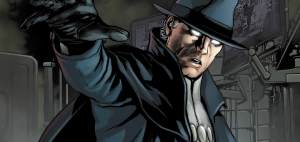
Phantom Stranger has been lurking around magical events in the DC universe for a while now. He’s a mysterious entity, who appears when he’s needed, and typically assists other heroes in overcoming something big and mystical. In the current continuity, they’ve made it pretty clear that he’s Judas Iscariot, cursed to wander the Earth as a stranger to all while running odd jobs for God as punishment for his betrayal. I mean, they never say the names “Judas” or “Jesus,” but it’s still really clear. That said, I’d advise skipping that while you’re on network TV.
He works for this show because he exists between the forces of Heaven and Hell. Neither angel nor demon, he’s exactly the sort of ominous ally Constantine might need while he’s trying to work the two factions against each other (side note: please have him work Heaven and Hell against each other, that just seems obvious).
Casting suggestion: Idris Elba. The thing the Phantom Stranger needs most is gravitas. It’s got to be clear that if he’s here, something serious is about to go down. And the more imposing he is, the more fun it’ll be when Constantine doesn’t give a fuck about how imposing he is. And if there’s one thing Idris Elba can seriously bring to the table, it’s power and gravitas.
2. Swamp Thing
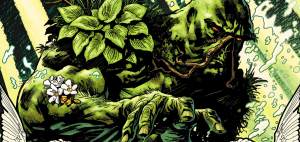
As I said above, Constantine and Swamp Thing go way back. And when you’re ready to move beyond angels, demons, and ghosts (which you should), Swamp Thing opens doors to the elemental realms. He’s the guardian of the Green, the force that links all plant life. And this frequently puts him at odds with humanity. Admit it, it’d be fun watching John have to match wits with a plant monster. If I have to explain further I’m not sure we can be friends. I mean, do I have to draw you a diagram here? He’s Groot with an expanded vocabulary.
Casting suggestion: Ron Perlman or Clancy Brown. Hellboy or the Kurgan. Even before you put the prosthetics on, they’ve got the size, the gruff demeanor, and the deep, booming voice needed to bring Swampy to sinister yet slightly lovable life.
3. Eclipso
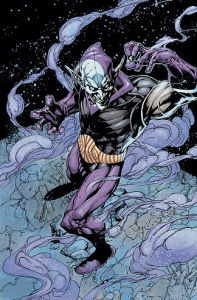
Post-90s Eclipso is a textbook attempt to redeem a silver age concept that was a little ridiculous. Originally a super villain that only came out during eclipses, Eclipso was re-invented in the 90s as a god of vengeance who had gone rogue and was imprisoned in a black diamond. If you hold the black diamond (or a fragment thereof) and feel rage, Eclipso will either possess you (if you want to harm the object of your rage yourself) or manifest as a construct (if you want the object of your rage harmed but not by you), take your vengeance, and then just go nuts on the world in general. Well, as long as he stays out of direct sunlight.
Constantine’s an exorcist. Eclipso would make for a hell of a recurring nemesis.
Casting suggestion: Robert Englund. Eclipso is cruel, vicious, and fancies himself as having a wicked sense of humour, so who better than Freddy Krueger?
4. I’ve said it before and I’ll say it again, ZATANNA.
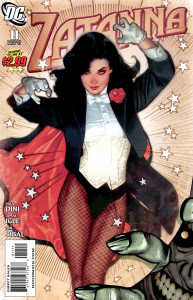
Zatanna is the most powerful sorceress in the DC universe. She can basically make anything happen just by saying it backwards. She’s put in some time with the Justice League, primarily back in the late 70s/early 80s, but typically works solo. Like Dr. Fate, she’s no stranger to television, having popped by Smallville a couple of times, but she’d fit in much better here.
In any continuity, Constantine and Zatanna have history. Former lovers turned occasional allies, even if the alliance is sometimes reluctant on Zatanna’s side (he is, as I have implied, not the easiest guy to get along with). In current comics, she’s also his surrogate conscience. She pushes him to do the right thing, when it’s often clear the wrong thing suits him better. It’s even implied that she used magic to try and alter his personality to be more heroic, because noble though she tries to be, sometimes she’s willing to cross lines other Justice Leaguers wouldn’t. Which caused some problems during the classic story Identity Crisis that I don’t have time to go into.
She’s an ideal addition to Constantine’s supporting cast. She is the ideal addition to Constantine’s supporting cast. And if she’s popular, which how would she not be… maybe a spin-off would be in order? And if that happens, I know a writer you could get for relatively cheap to work on it. (Hint… it’s me. Me over here. This guy.)
Casting suggestion: Sarah Jones. She’s taken a couple of swings at television already (as the FBI agent tasked with hunting down time-displaced criminals in Alcatraz and the morally shady count room manager for the Savoy casino in Vegas), but nothing that’s lasted past a season. But she’s got a great intensity and a habit of outshining more famous co-stars like Sam Neill or Dennis Quaid. She needs a hit like I need Zatanna in this show. And then on her own show. Which you could hire someone else to run, if you needed to… Bryan Fuller’s probably too busy between Hannibal and American Gods, isn’t he? Damn it, why can’t he just write everything…
And that’s the lot. Well, okay, there’s also Agent Carter and iZombie, but they’re not until mid-season and I do not have much to say about them. And Supergirl and Titans haven’t been officially picked up yet (although Supergirl’s super close–I apologize for the wording, I see now that was the wrong thing to do). So we’ll call that a wrap.
Next time… other stuff. It’s been a busy day, I’ll figure that out later.

